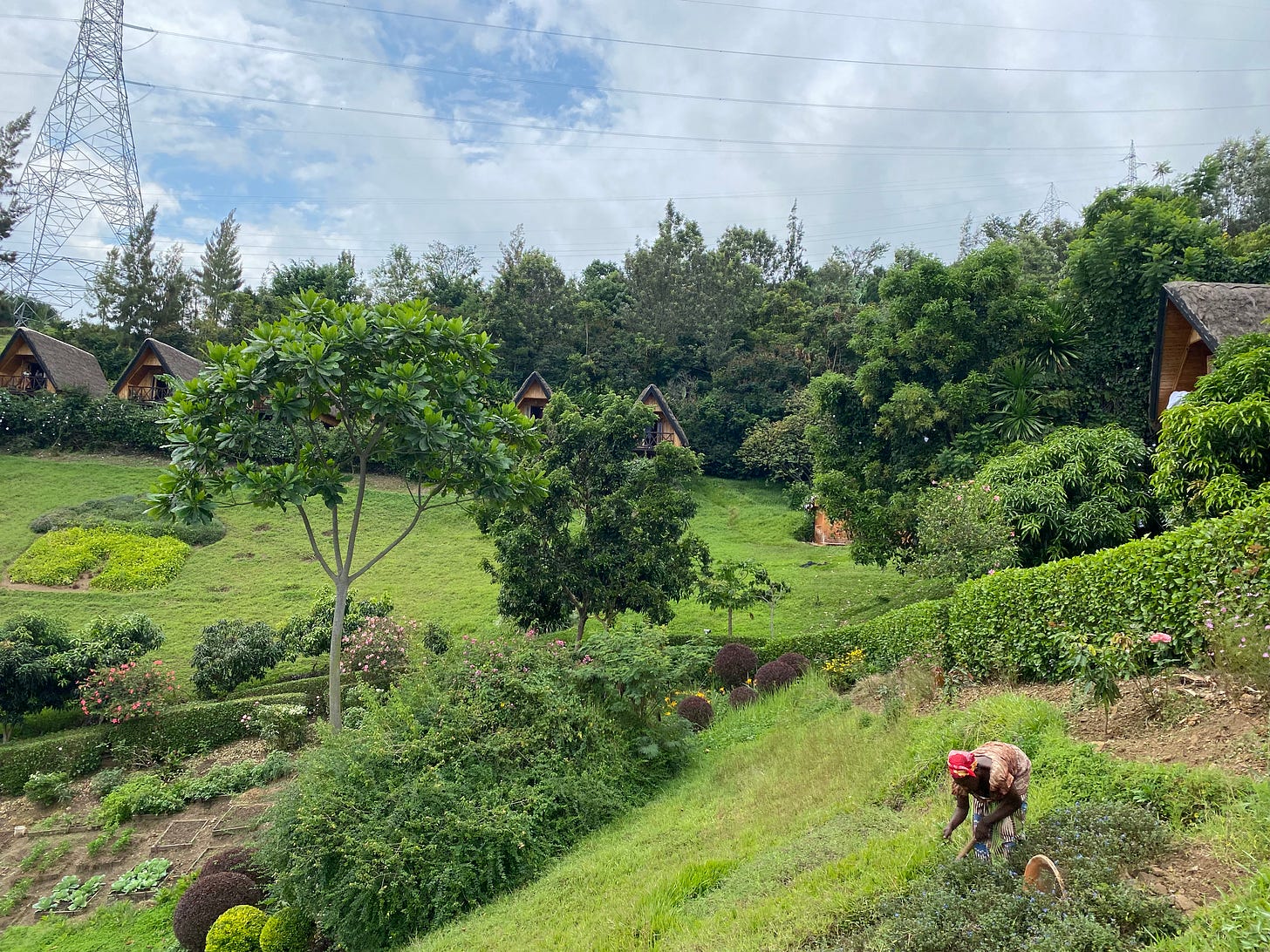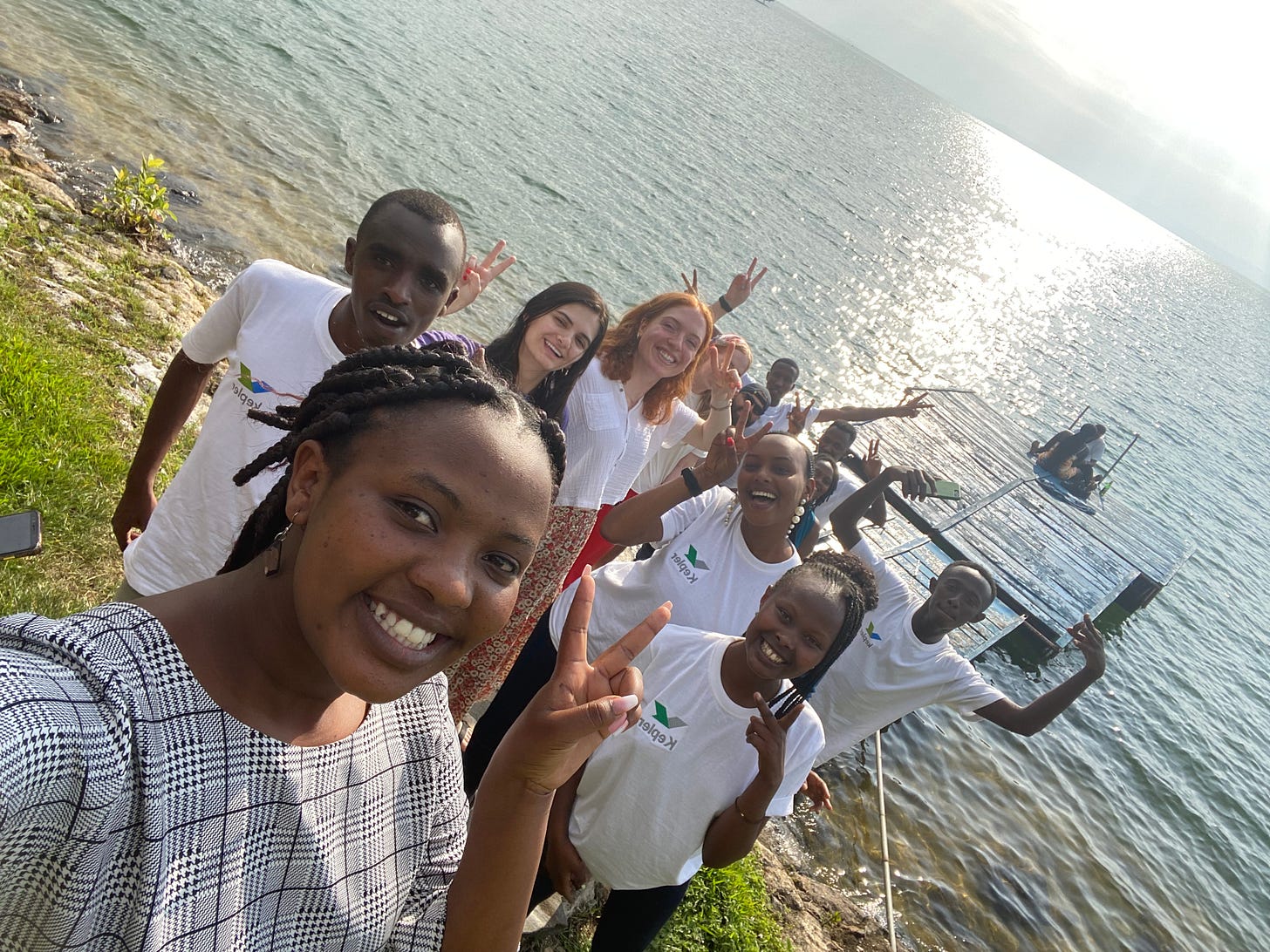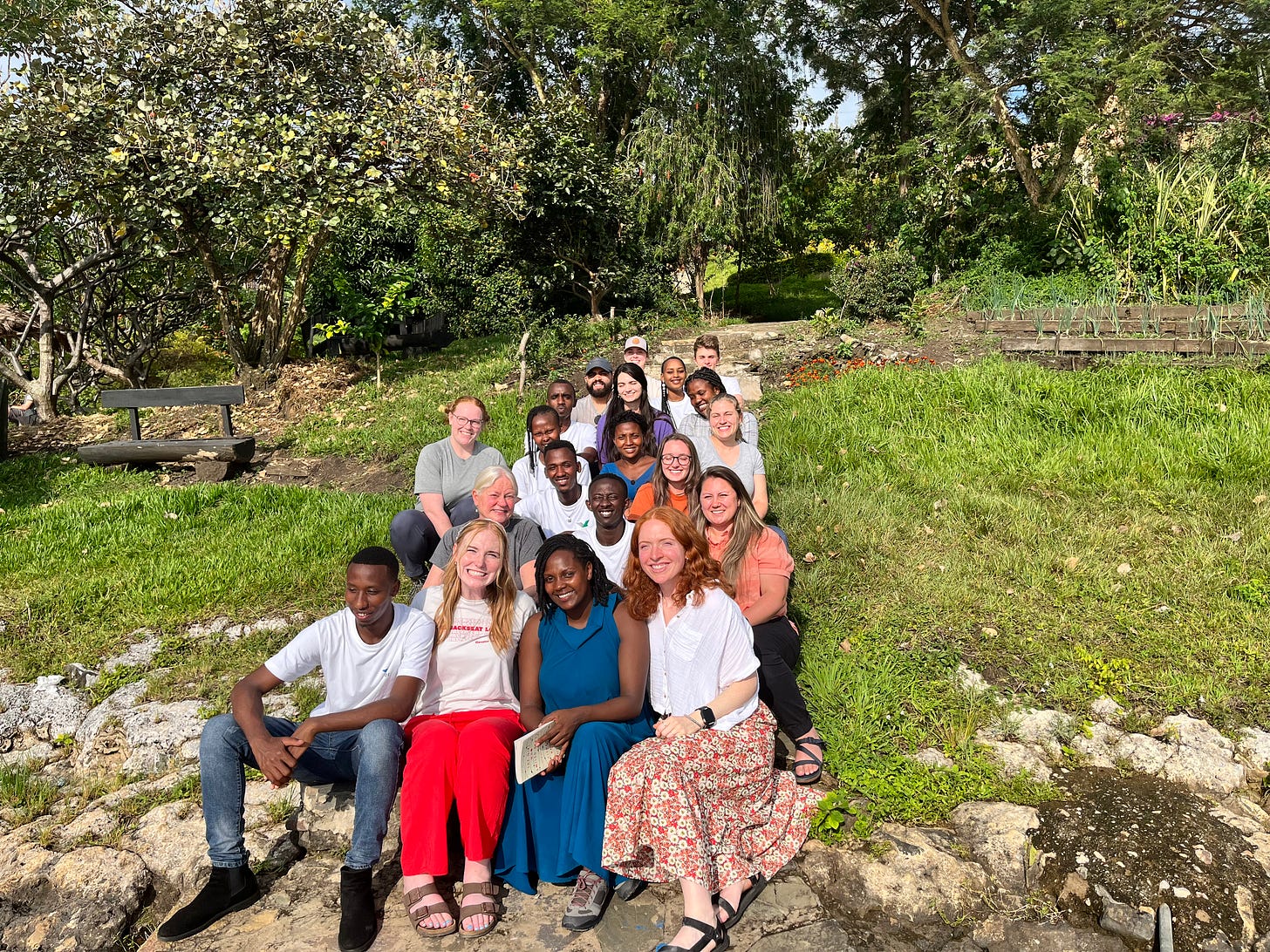I did not know what to expect when coming to Rwanda. Over my years of travel, I haven’t come anywhere near the continent of Africa, let alone Rwanda. The Republic of Rwanda is a small country in East Africa surrounded by four other countries – Uganda, Tanzania, the Democratic Republic of the Congo, and Burundi.
As I awoke the morning of my first day in Rwanda, a birdsong so different than what I am used to back home greeted me, and I eagerly got out of bed to see this brand-new exciting place. However, several days later, I found myself struggling with the paradox that, although I had no real expectations before coming here, I continue to have those same expectations surpassed. It is hard to explain, but those around me seem to be grappling with this same thing.
Fast forward a week. As I sit down to lunch at our hotel overlooking Lake Kivu, in Rwanda’s Western Province, the air is heavy with the threat of rain. A young woman sits next to me, and I notice her nails—a soft pink ombre that fades into a light nude. “I love your nails,” I say genuinely. “Thank you!” She answers with a smile. “My name is Aimee, what’s yours?” Aimee is 23-years old, originally from the Democratic Republic of the Congo (DRC). She is visiting us from Kepler University. Kepler is an academic institution that is “leading by example” I hear from many of those around me. It operates a branch within the Kiziba refugee camp near Lake Kivu. Kiziba is one of six refugee camps in Rwanda operated by the UNHCR in conjunction with the Rwandan government.1
Kiziba-Kepler is attended and taught by refugees currently residing within the camp of Kiziba. I continued to learn that my new friend Aimee is a recent graduate, with a degree in Communication. She hopes to obtain a master’s degree in Barcelona, Spain next year. As we talk through lunch, I discover that she is passionate about empowering women and proudly considers herself a feminist. Finding that we have quite a bit in common, I feel the beginnings of a new friendship quickly growing.
Throughout our conversations the rest of the day, Aimee and I spoke on a variety of subjects. From boys to college rejection, we were able to find commonalities in one another, and therefore connection. Despite our differing backgrounds and realities, our worldviews were mingling with the intake of different outlooks on life. And, although our answers differed in many ways, we were able to come back to one common theme: humanity. I saw Aimee as my equal not only in age, but also in the value that comes from simply being human. I am no better than her, and she is no better than me. Yet this simple statement is backed by the sometimes daunting tasks of self-awareness, acceptance, and empathy. To understand and empathize with another, you must first understand and accept yourself. Interacting with Aimee and all the Kepler students, I accepted the fact that I will most likely never be able to even begin to fathom what Aimee or other refugee students’ lives are like in the camp on a daily basis, and that the little I may “know” is probably wrong. And yet, despite this difference between us, I do not want to pity Aimee or the refugee students. For me, pity implies some innate sense of superiority that goes beyond structural differences, such as the relatively negative situation that they currently find themselves within, and inevitably leads to “othering.” Othering2 refers to the process whereby an individual, or group of people, attributes negative characteristics to others that set them apart as inherently different, inferior, or threatening. At its core, it is when we socially categorize people into two groups -- “us vs them.”
Reflecting on my growing friendship with Aimee, I once again think about the concept of pity and how wrong it feels to apply it to the difference in our everyday realities. Aside from invoking othering, to pity someone or something essentially disempowers the subject or object of pity. And, if you believe the “other” is unchanging and innately different from yourself, then discrimination, and stereotyping can come into play. A vicious cycle often ensues, which, if continued, can lead to hate and violence towards those we view as different from ourselves.
The opposite of othering is belonging. And my time with Aimee not only gave me a sense of this, but also a sense of hope in fighting against the processes of othering. Having the opportunity to meet and connect with people that are ‘seemingly’ so different than myself made me realize that, when given the chance to interact and communicate across cultural borders, genuine connections prevail. To me, that is both a beautiful and remarkable thing.
Where We Work.” UNHCR Rwanda, https://www.unhcr.org/rw/where-we-work. Accessed 18 July 2022.
Us vs. Them: The Process of Othering.” CMHR, https://humanrights.ca/story/us-vs-them-the-process-of-othering. Accessed 18 July 2022.






